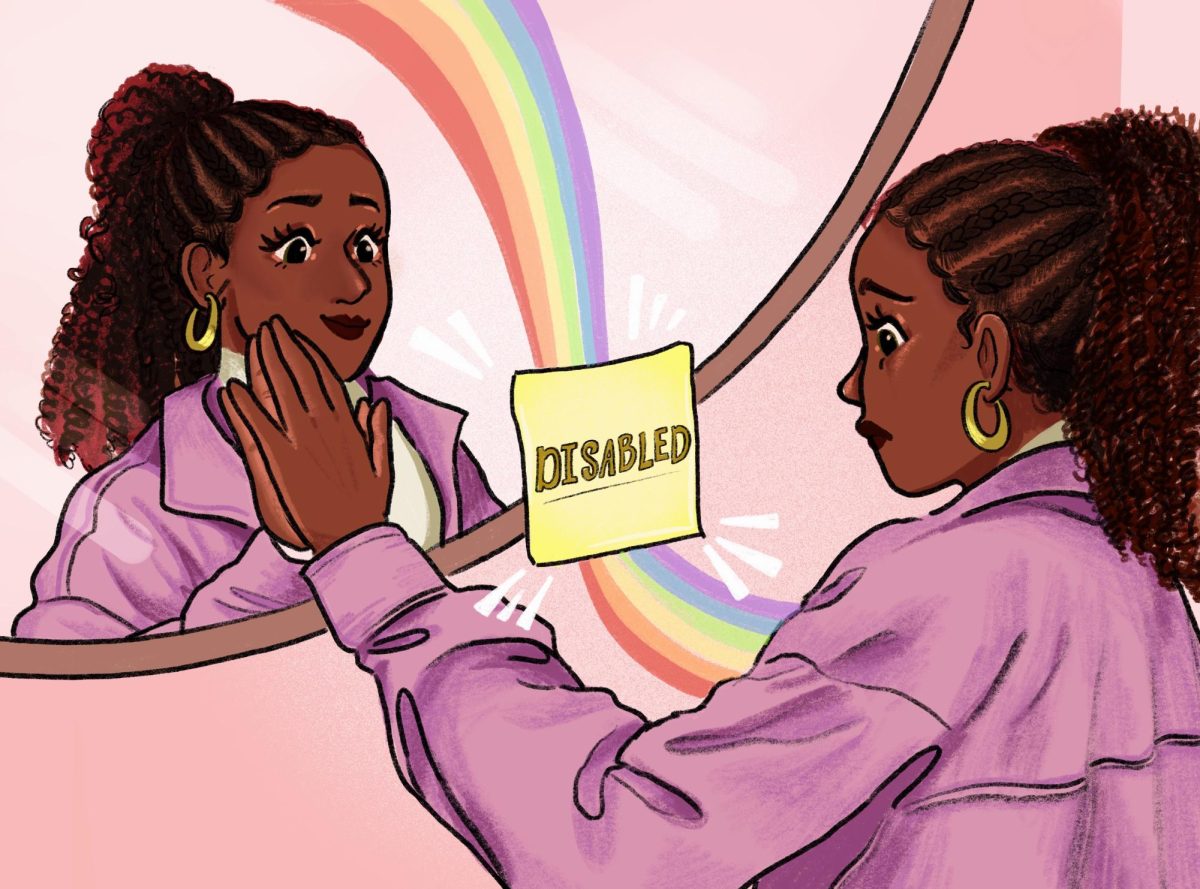Coming from a small town, everyone in my grade knew I was deaf. While it was nice not having to explain myself to my peers, that environment did not prepare me for college where using the word “disabled” is generally avoided.
I have worn hearing aids since I was in pre-kindergarten, had a 504 plan that gave me the accommodations necessary to create an accessible education and was in special education. So, I’ve learned a lot about communicating different aspects of a disability to others.
When discussing disabilities, people are often concerned about offending someone or being labeled as ableist — a problem with no easy solution. Although there are many resources online to help one become more sensitive in disability discussions, sometimes it’s best to ask a person with disabilities in your life.
Disability-related terminology can be tricky because there are certain words to avoid. However, it is a learning process since many people aren’t educated on the topic. It’s okay to make mistakes and misunderstand, but you must also acknowledge an error and correct yourself.
While “disabled” is not a word to avoid, it is a word with a bad reputation due to constant incorrect usage. For instance, when talking about students with disabilities, you should reference them as “students with disabilities” rather than “disabled students.”
In my experience, people have a lot of questions they otherwise wouldn’t have the answer to. They’re curious and usually willing to change or learn when the opportunity arises.
Always Texas is a spirit group on campus that emphasizes the importance of inclusivity. They hold workshops to educate members and create a welcoming and comfortable space.
“No one just knows everything, especially about topics such as disabilities,” said Allie Murphy, the co-president of Always Texas and a public health senior. “You just have to be willing to learn things.”
Murphy also has a physical disability that may not be noticeable to others, known as an “invisible disability.” Murphy said her invisible disability has made it necessary to adjust to constantly having these kinds of conversations.
“I think that higher education is a time for people to navigate uncomfortable conversations (and) uncomfortable topics,” Murphy said.
The Campaign to End Loneliness discusses how people with disabilities develop higher levels of loneliness due to barriers that separate them from the general population. Normalizing disability discussions and learning the proper terminology can help prevent isolation and better educate the community.
An experience or circumstance that may inconvenience you or seem odd might actually be someone else’s way of life. Becoming annoyed or responding negatively can make someone uncomfortable or prevent them from sharing personal experiences or attending social events.
Personally, I always have to ask a worker at a restaurant or store to repeat themselves — usually multiple times — often leading to their frustration. In loud environments, it’s difficult to share that I can’t hear them since I struggle to gauge their words.
However, I don’t experience this frustration or annoyance with people I regularly surround myself with because I’ve encouraged them to ask questions. Now, I try to make my disability part of my introduction, right after my name and major.
It’s always okay to ask questions or attempt to start a discussion. Just be sure to ask respectfully and patiently.
Rail is an English sophomore from El Paso, Texas.















